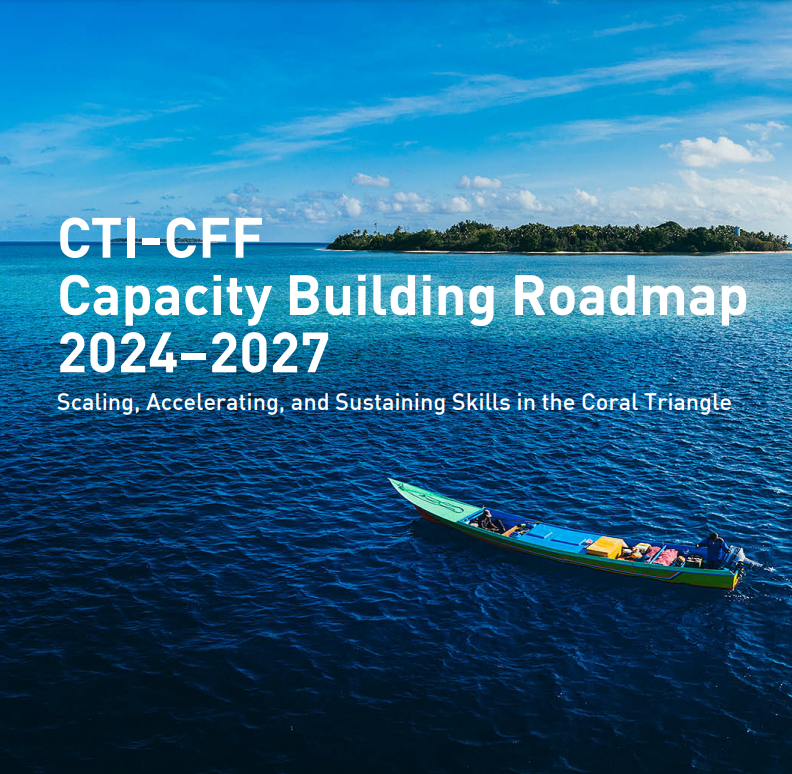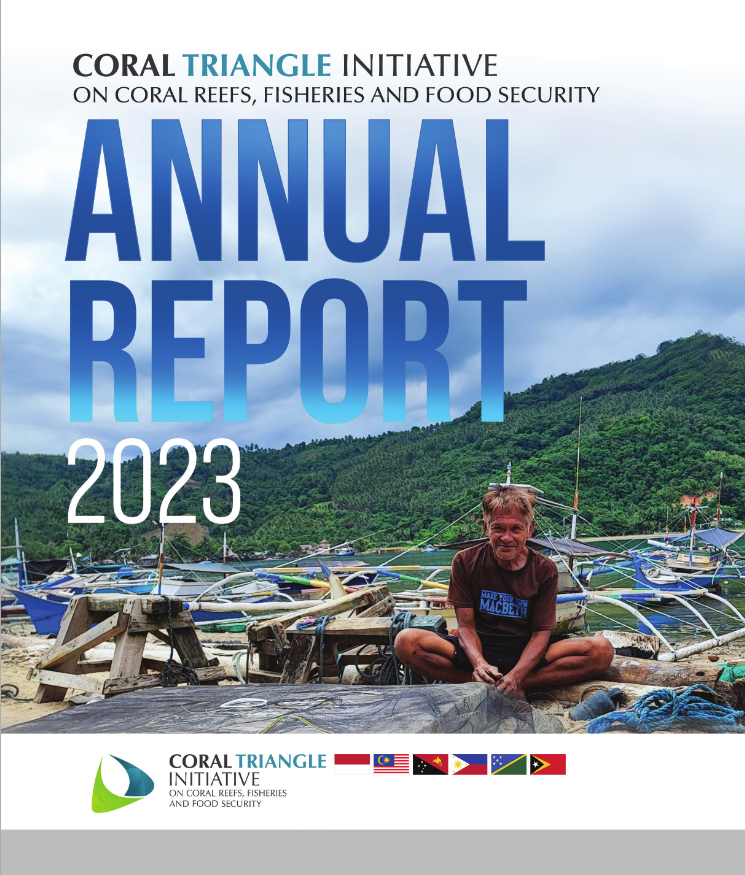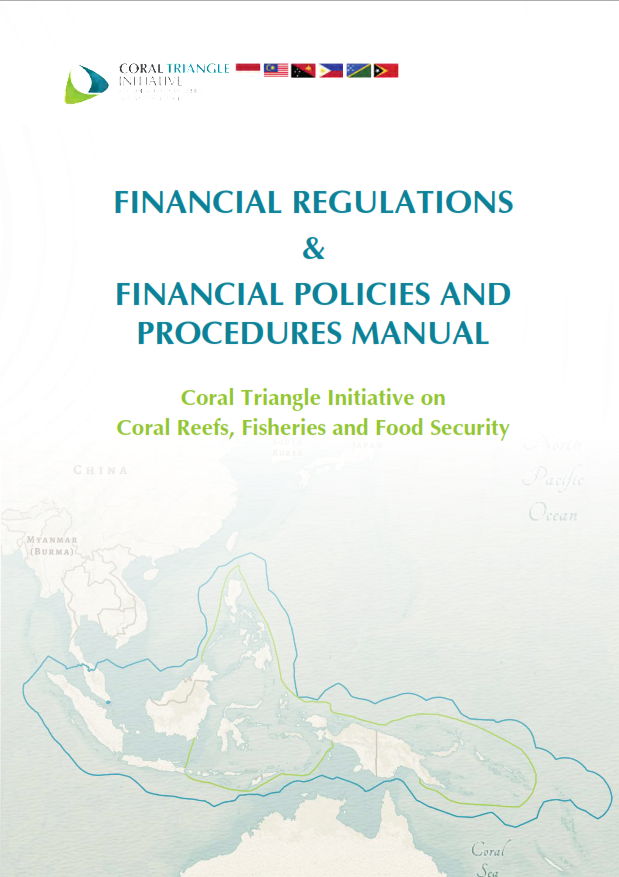CTI-CFF raise awareness on gender equality among women in Bitung fishing communities
Bitung, North Sulawesi, Indonesia 19 June 2019 – In celebration of Coral Triangle Day, the Coral Triangle Initiative on Coral Reefs, Fisheries and Food Security (CTI-CFF) gathered 20 women from fishing community villages in Bitung City, North Sulawesi, about 30 kilometres from the Regional Secretariat CTI CFF. The intention is to raise awareness on gender equality as a step towards making them informed and involved in contributing to the livelihood of their family, community and economic development of Bitung. This activity is in partnership with USAID Oceans, Oceanic Fishing Port Bitung and the Office of Bitung Marine and Fisheries Service.
Coral Triangle Day is an annual celebration that aims to promote ocean conservation and the numerous ways to protect and conserve the Coral Triangle – the center of marine life that geographically expands to six countries – Indonesia, Malaysia, Papua New Guinea, Philippines, Solomon Islands and Timor-Leste This year, the celebration focuses on gender equality in Coral Triangle.
“Gender equality is important particularly in marine conservation and protection. It means allowing and empowering women as well as girls to be the actors in initiating positive change in marine and coastal management,“ CTI-CFF Regional Secretariat Interim Executive Director Dr. Hendra Yusran Siry said. He added that women who are working in the fishing sector are provided with safe working conditions and given equal rights and opportunities in managing fishing activities.
Based on a 2018 study conducted by the Faculty of Fisheries and Marine Science of Sam Ratulangi University in Manado, Indonesia for USAID Oceans, it revealed that both men and women have roles in Bitung fisheries sector. However, community members continue to reinforce gender roles through beliefs and perceptions that women are not suitable for fishing because of perceived physical limitations or their responsibility to take care of their household.
As such, men largely control access to physical resources including ships, fishing gear and industrial scale processing units, while women only gain access to small-scale processing units and local marketing activities. Although, the report also noted that that access to capital and information resources, especially for small-scale ventures, are most often dominated by women. Further, it noted that time spent by women and men in the tuna value chain is relatively equal and empowerment and decision making varies across the value chain, but on average are relatively equal and reasonable.
The workshop for women in fishing community in Bitung is expected to sensitize women on their important role and contribution in the improvement of their socio-economic condition as well as their community. Further, it is expected that with the gender-related challenges identified, the women participants will be able to identify the necessary actions and stakeholders to address it and make the necessary and initial steps to get the stakeholders to move. The outcomes of this workshop are expected to contribute as an input to the renewal process of the Regional Plan of Actios (RPOA) of CTI-CFF.
-End –
About CTI-CFF
The Coral Triangle Initiative on Coral Reefs, Fisheries, and Food Security (CTI -CFF) is a multilateral partnership of six countries: Indonesia, Malaysia, Papua New Guinea, the Philippines, Solomon Islands, and Timor-Leste (CT6). The CT6 countries work together to sustain extraordinary marine and coastal resources by addressing crucial issues such as food security, climate change, and marine biodiversity. The CTI-CFF was established formally during the Leaders’ Summit in 2009 with approval of the leaders from the CT6 countries. They adopted the CTI Regional Plan of Action (CTI RPOA) which is a strategic action plan with five goals: (1) designation of effectively managed seascapes; (2) application of an ecosystem approach to fisheries management; (3) establishment of a fully functional marine protected area system; (4) strengthening climate change adaptation and resilience; and (5) improving the status of threatened marine species.
About Regional Secretariat
The Regional Secretariat (RS) of the CTI-CFF is mandated to promote regional cooperation, knowledge sharing, and learning facilities within the six-member countries of the Coral Triangle. The RS coordinates and monitors the progress of the implementation of the Regional Plan of Action (RPOA) goals. The RS coordinates and supports official meetings and events linked to the CTI-CFF process, including cross-cutting services in support of monitoring and evaluation, financial coordination, information management and outreach. It also coordinates the implementation of CTI-CFF RPOA and provides support to, and coordination with, NCCs, including advising the CTI-CSO on emerging opportunities and priorities to reaching the goals and targets of the RPOA. The RS also acts as the channel of communication and information sharing and foster networking among the Parties, CTI Partners and other organizations and donors in the efforts to promote the objectives of the CTI-CFF. The Regional Secretariat is based in Manado, North Sulawesi, Indonesia.
###
Media Contact:
Janet Rosalie Anne H. Polita
Communication & Information Manager
CTI-CFF Regional Secretariat www.coraltriangleinitiative.org
Email: jpolita@cticff.org
and regional.secretariat@cticff.org



